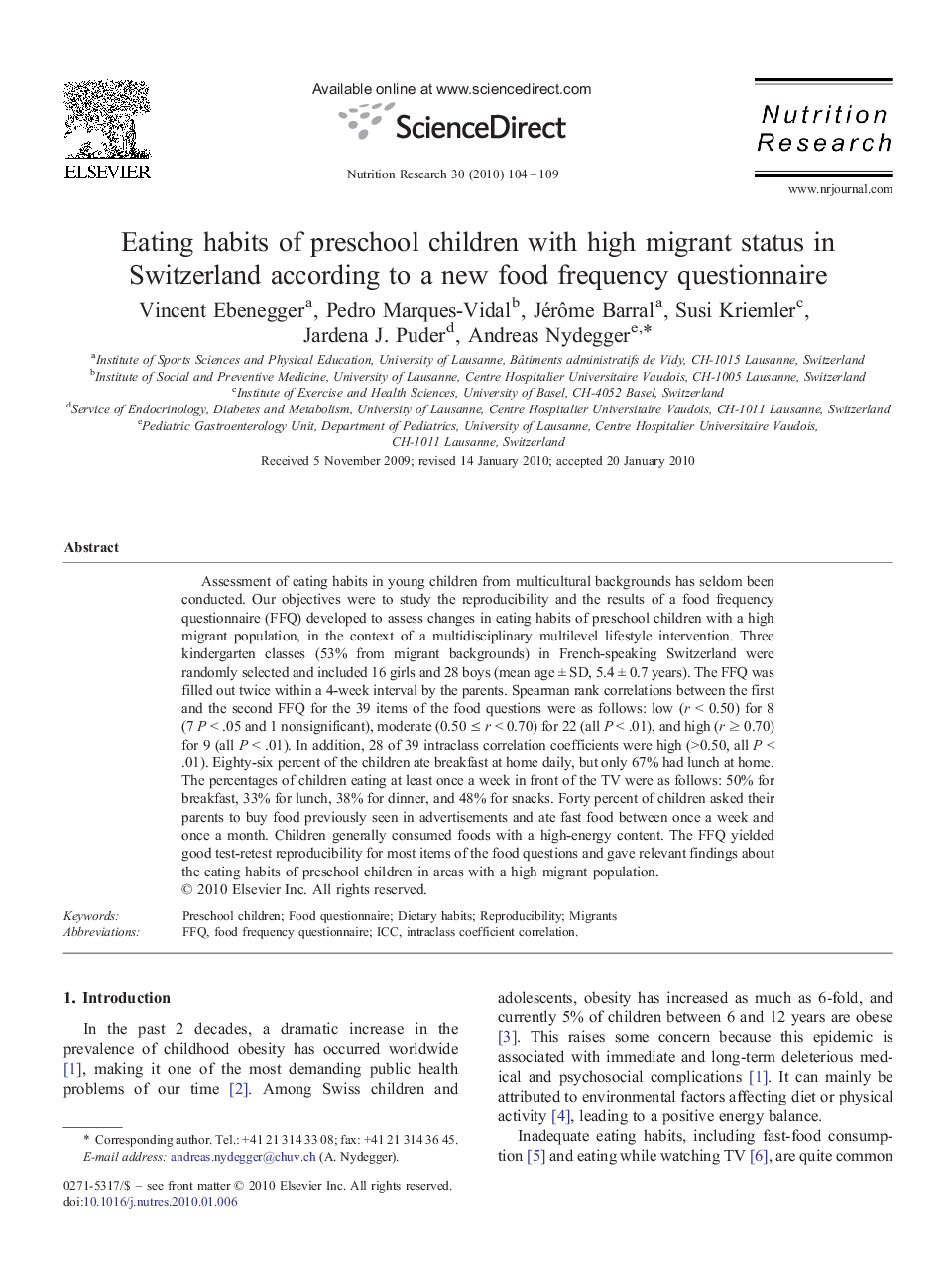| Article ID | Journal | Published Year | Pages | File Type |
|---|---|---|---|---|
| 2809772 | Nutrition Research | 2010 | 6 Pages |
Assessment of eating habits in young children from multicultural backgrounds has seldom been conducted. Our objectives were to study the reproducibility and the results of a food frequency questionnaire (FFQ) developed to assess changes in eating habits of preschool children with a high migrant population, in the context of a multidisciplinary multilevel lifestyle intervention. Three kindergarten classes (53% from migrant backgrounds) in French-speaking Switzerland were randomly selected and included 16 girls and 28 boys (mean age ± SD, 5.4 ± 0.7 years). The FFQ was filled out twice within a 4-week interval by the parents. Spearman rank correlations between the first and the second FFQ for the 39 items of the food questions were as follows: low (r < 0.50) for 8 (7 P < .05 and 1 nonsignificant), moderate (0.50 ≤ r < 0.70) for 22 (all P < .01), and high (r ≥ 0.70) for 9 (all P < .01). In addition, 28 of 39 intraclass correlation coefficients were high (>0.50, all P < .01). Eighty-six percent of the children ate breakfast at home daily, but only 67% had lunch at home. The percentages of children eating at least once a week in front of the TV were as follows: 50% for breakfast, 33% for lunch, 38% for dinner, and 48% for snacks. Forty percent of children asked their parents to buy food previously seen in advertisements and ate fast food between once a week and once a month. Children generally consumed foods with a high-energy content. The FFQ yielded good test-retest reproducibility for most items of the food questions and gave relevant findings about the eating habits of preschool children in areas with a high migrant population.
